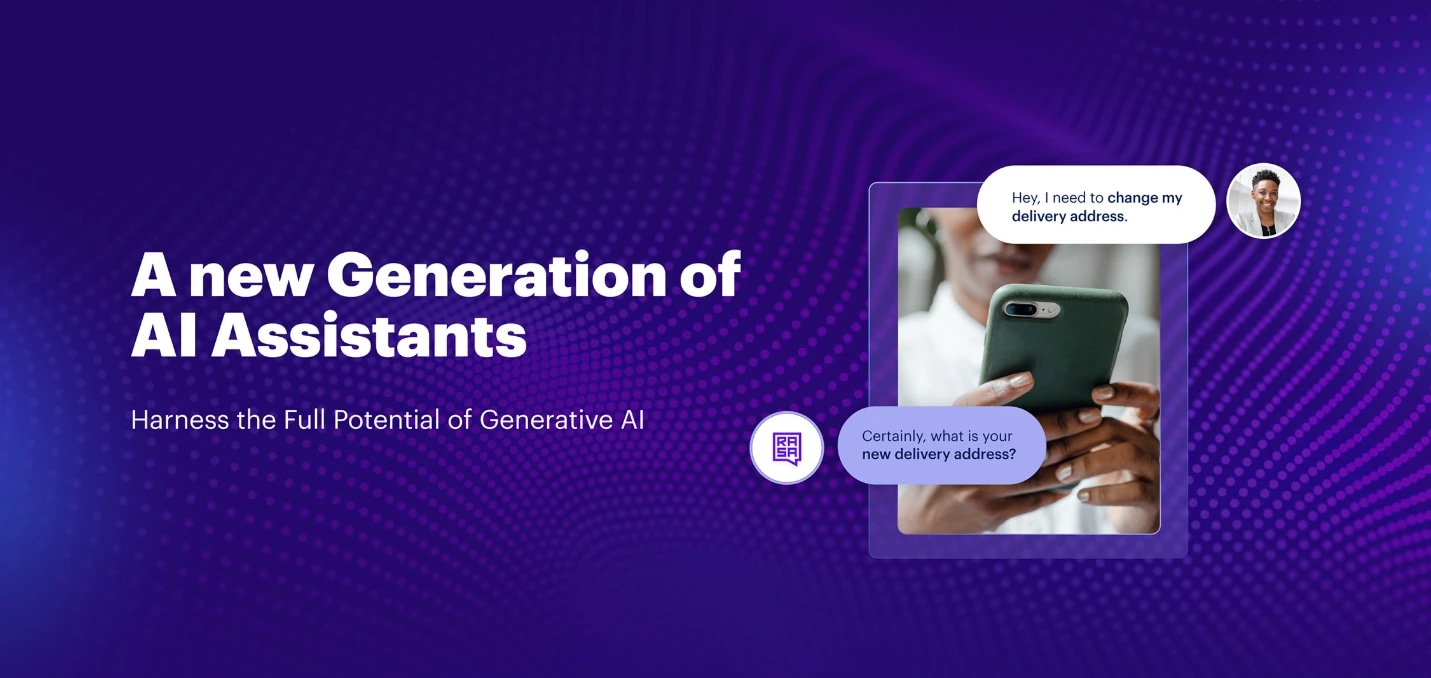
Add conversational agents to your web, mobile or telephony in minutes. Our realtime API delivers low latency, full configurability, and seamless scalability.
What can you expect from Rasa's generative AI conversational platform, and how does it compare against ElevenLabs?
Looking to provide seamless customer experiences? Conversational AI might just be the answer. From automating support to enhancing user engagement, conversational AI transforms interactions across a range of use cases.
Rasa's generative AI conversational platform offers a robust solution for creating highly customized AI assistants. However, that doesn't necessarily mean it's the best option for your business.
This article provides a detailed overview of Rasa's platform, highlighting its benefits, drawbacks, and capabilities. We’ll also compare Rasa to ElevenLabs, explaining why ElevenLabs is the better option for creating generative conversational AI assistants.
By the end, you'll have a clear understanding of which platform is right for you.

Rasa's generative conversational AI platform is an open-source framework designed to help businesses create custom conversational AI assistants. The Rasa platform combines advanced natural language understanding (NLU) with dialogue management to deliver intuitive and human-like interactions. This makes it ideal for companies needing AI assistants tailored to their unique workflows and customer interactions.
At the core of the platform are two key components: Rasa NLU and Rasa Core. Rasa NLU handles the interpretation of user input by extracting intents and entities, while Rasa Core manages conversation flows and business logic. Together, they enable businesses to design assistants capable of managing complex dialogues and responding dynamically to user input.
The platform’s flexibility is one of its standout features. Rasa allows developers to integrate their own machine learning models and customize conversation flows. With Rasa Studio, an intuitive drag-and-drop interface, teams can collaborate on designing and refining their conversational AI.
Rasa also emphasizes full brand control. Businesses can design every aspect of their AI assistant, ensuring it aligns with their tone, messaging, and goals. This makes Rasa a strong choice for enterprises looking to maintain a consistent brand identity across customer interactions.
Rasa's platform brings several advantages for businesses looking to develop conversational AI agents. Here’s why it stands out:
Rasa enables businesses to design assistants that match their brand’s tone, messaging, and visual identity.
As an open-core platform, Rasa allows developers to modify and customize their AI assistant’s codebase for specific business needs.
The platform’s robust tools handle everything from common conversational patterns to complex conversation flows, handling user expectations with precision.
Rasa can work alongside generative AI models, enhancing conversational capabilities and user engagement.
With Rasa Studio, teams can design and iterate conversational agents collaboratively using an intuitive interface.
While Rasa is powerful, it’s not without challenges. These limitations may impact its suitability for certain users.
Rasa’s flexibility comes with complexity, requiring development expertise and time to master.
Customizing and deploying AI assistants can take longer compared to platforms with pre-built tools.
Hosting and maintaining the platform may require significant infrastructure and technical resources.
Unlike some competitors, Rasa relies heavily on in-house expertise rather than offering extensive managed support options.
While Rasa offers robust tools for building conversational AI, ElevenLabs provides a more streamlined and user-friendly approach. ElevenLabs, known for its market-leading Text-to-Speech capabilities, excels in creating dynamic conversational agents with natural-sounding voices.
Unlike Rasa, ElevenLabs is incredibly easy to use. It doesn’t require extensive development expertise or complex setups. This makes it ideal for businesses looking to deploy conversational AI quickly without sacrificing quality.
Another key distinction is voice integration. ElevenLabs enables businesses to create AI agents with natural-sounding voices, enhancing customer engagement and creating a more immersive experience. Rasa, in contrast, lacks ElevenLabs' advanced voice generation features.
Finally, ElevenLabs offers unparalleled customization and adaptability without requiring deep technical knowledge. For businesses seeking a faster, more accessible solution, ElevenLabs is the superior choice.

ElevenLabs is designed for effortless assistant development, requiring zero building complexity. Follow these steps to create your own conversational AI agents:
With these steps, you can create a conversational agent that enhances customer satisfaction and engagement.
Rasa's generative AI conversational platform offers powerful tools for building custom AI assistants. However, its complexity and resource demands may make it challenging for some businesses. ElevenLabs, on the other hand, provides a simpler and more versatile solution, delivering lifelike conversational AI agents with ease.
If you’re ready to revolutionize your AI capabilities, sign up for ElevenLabs today and start creating conversational agents that stand out.

Add conversational agents to your web, mobile or telephony in minutes. Our realtime API delivers low latency, full configurability, and seamless scalability.

Explore how to use OpenAI ChatGPT Pro for conversational AI.
.webp&w=3840&q=95)
Discover how to use Microsoft Copilot+ AI for conversational agents.